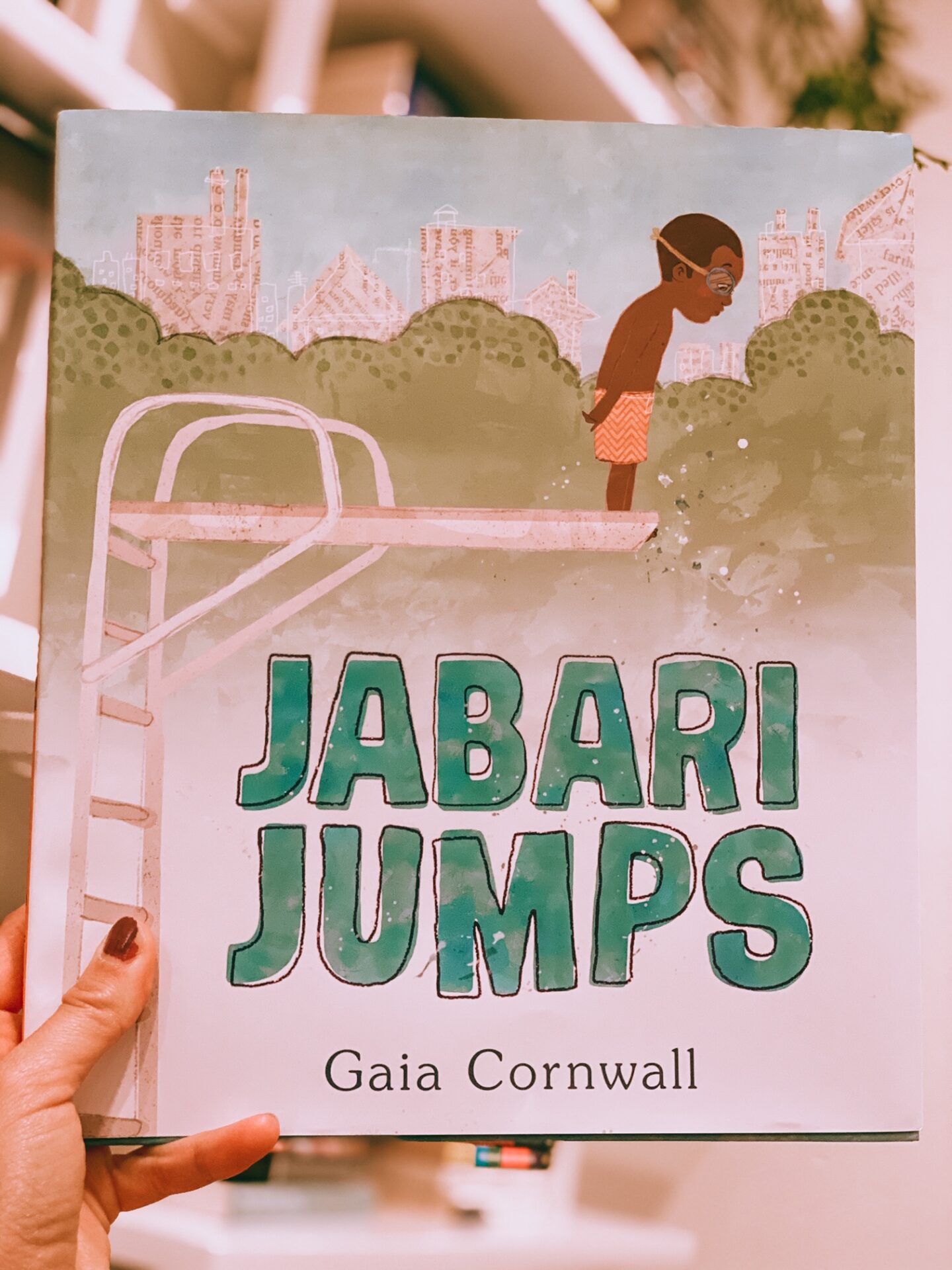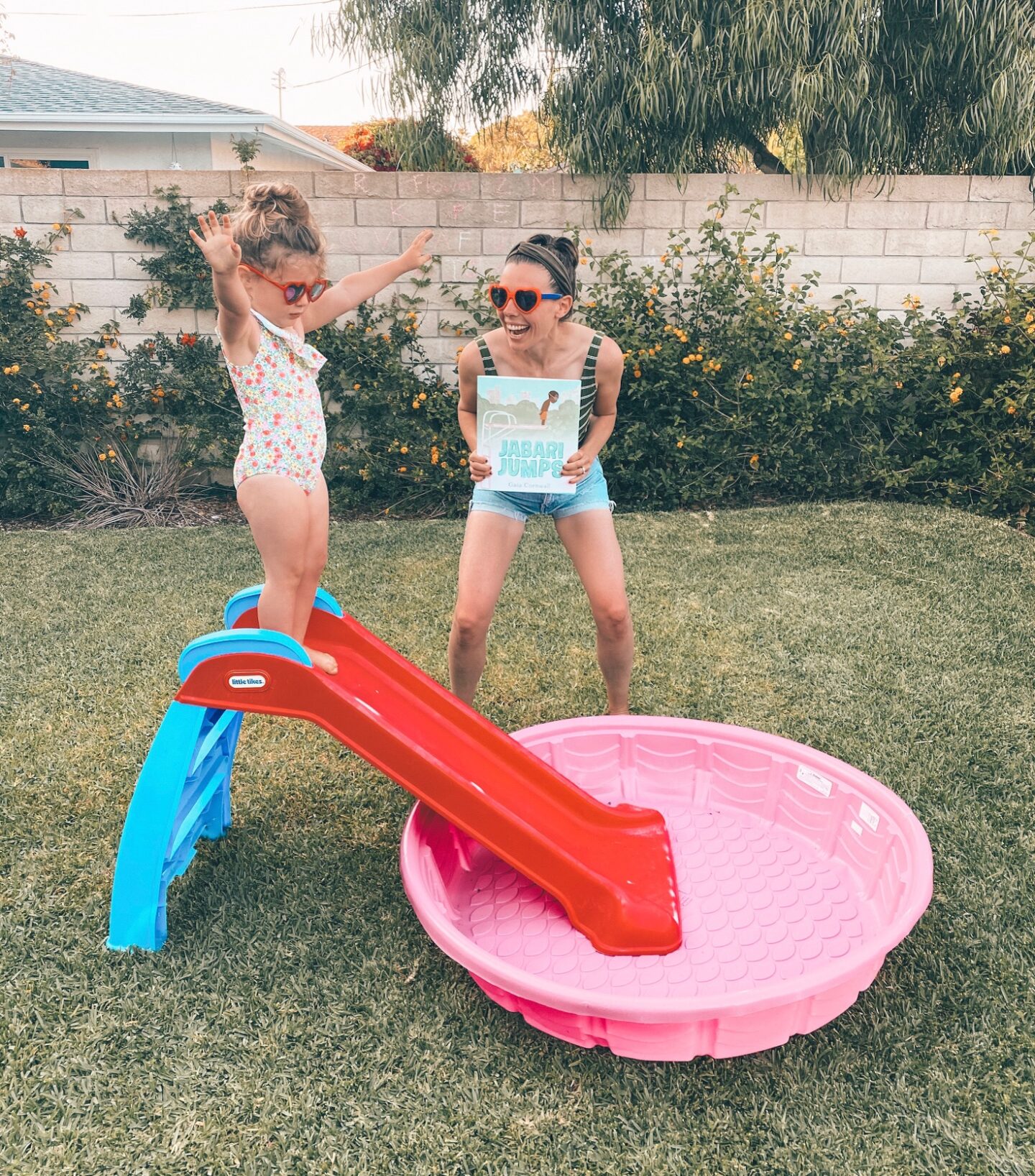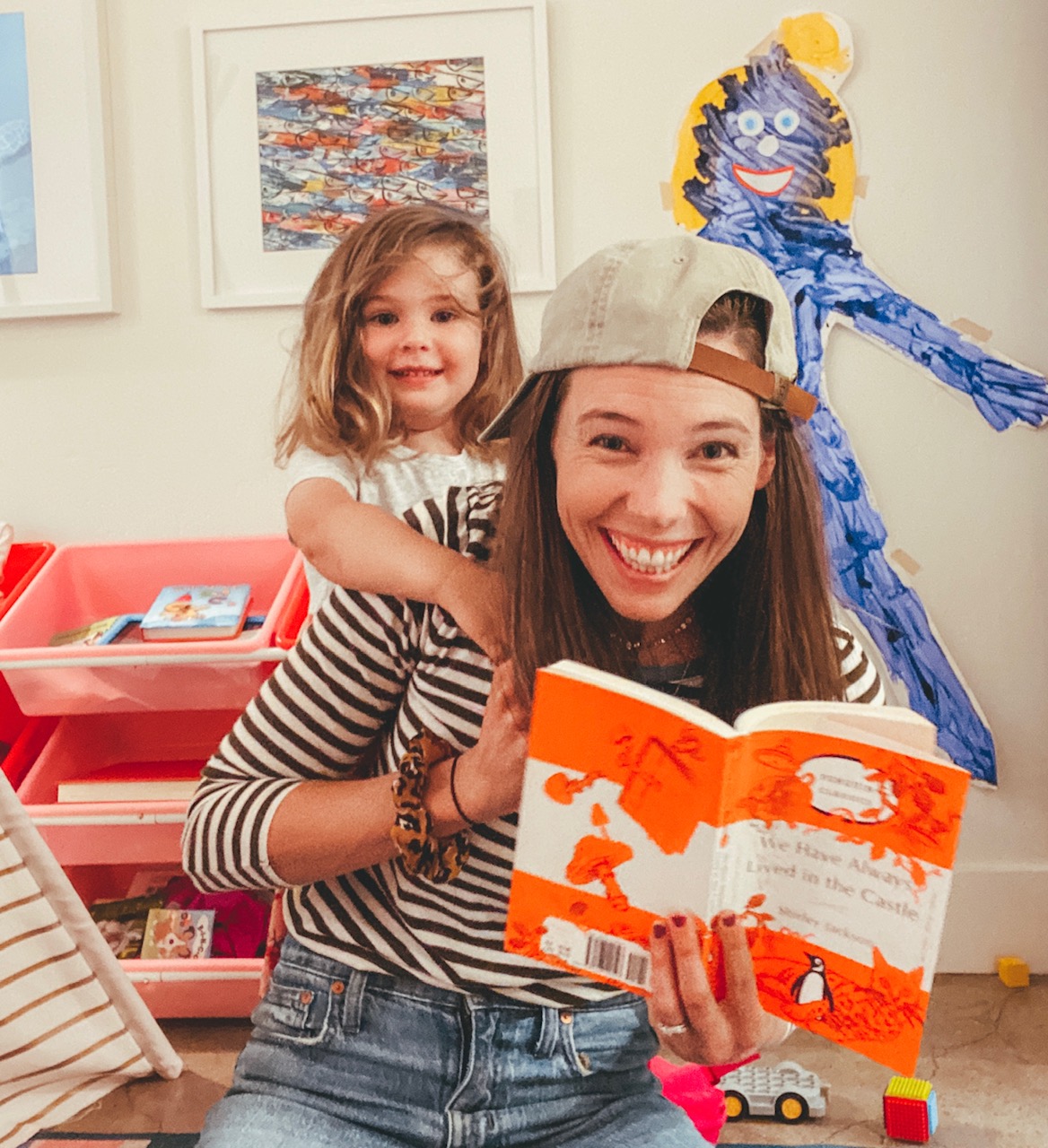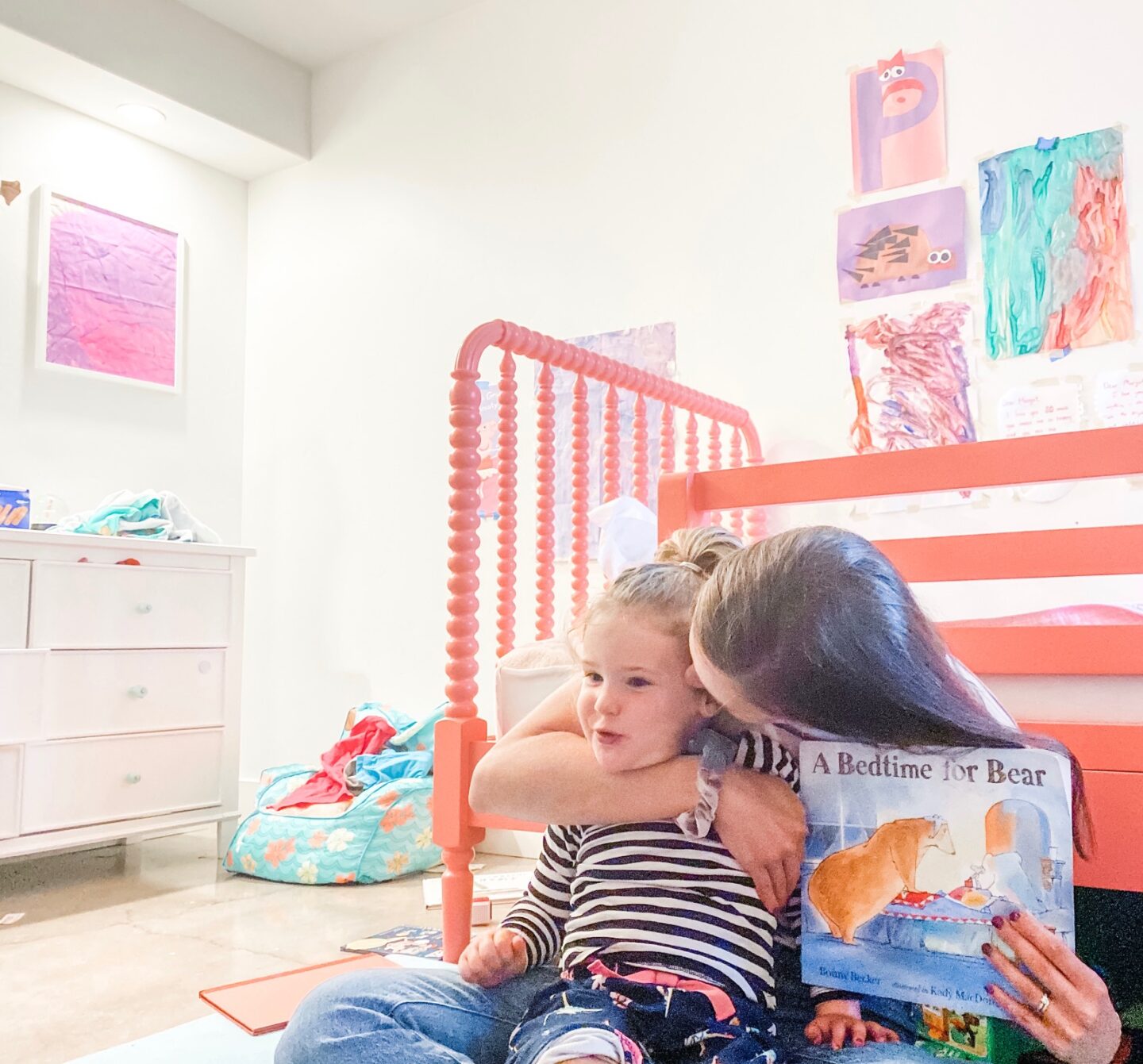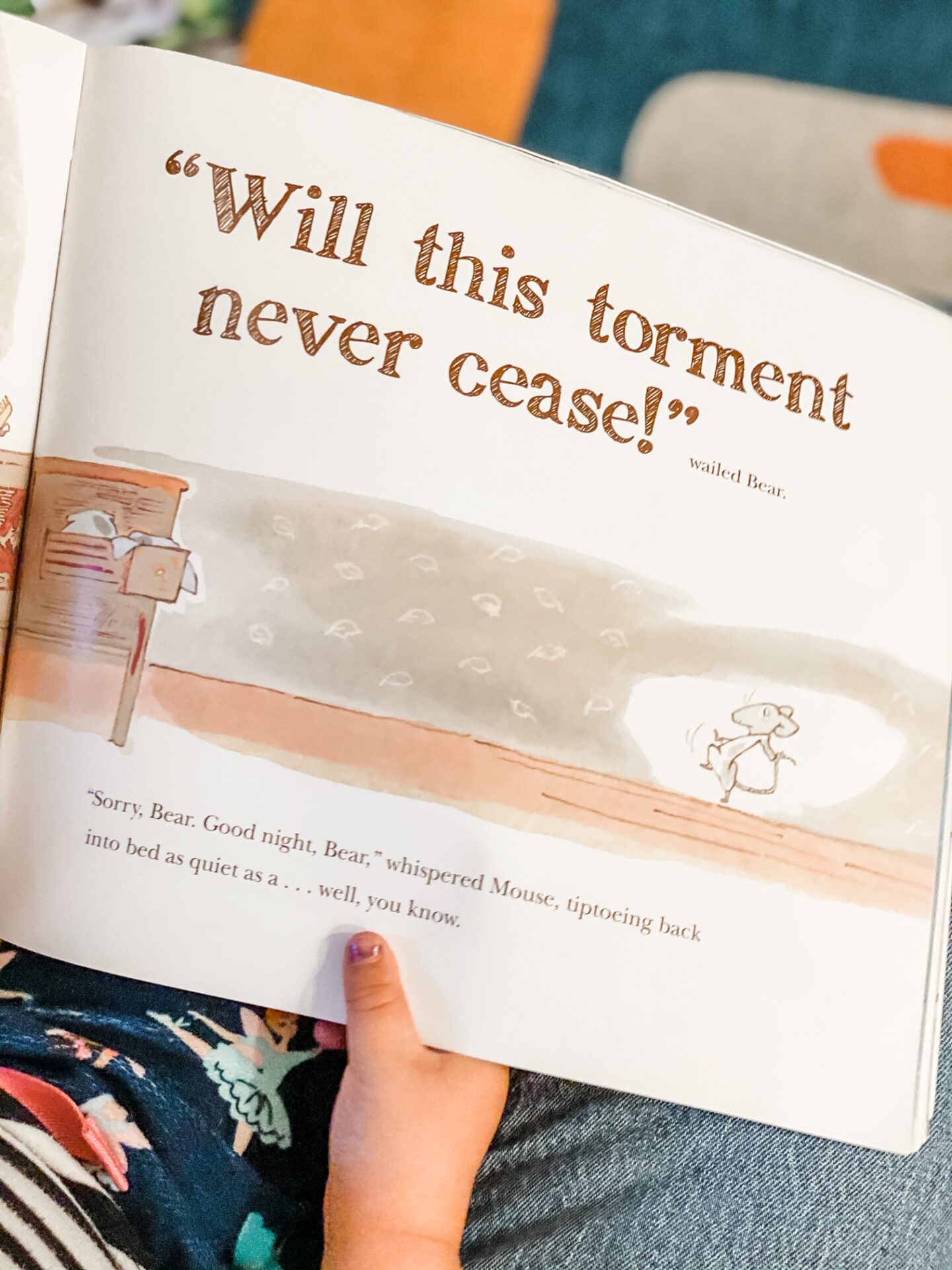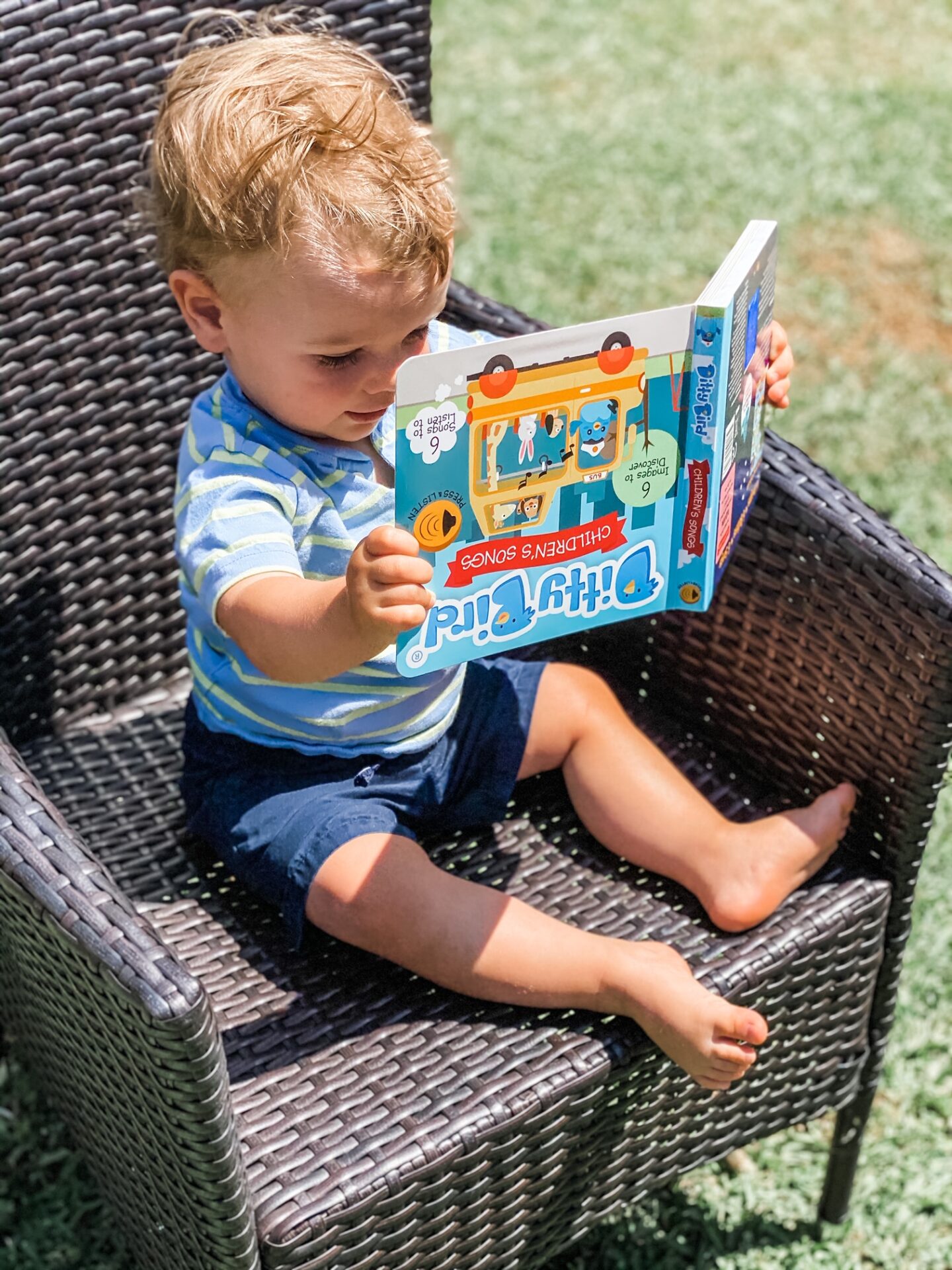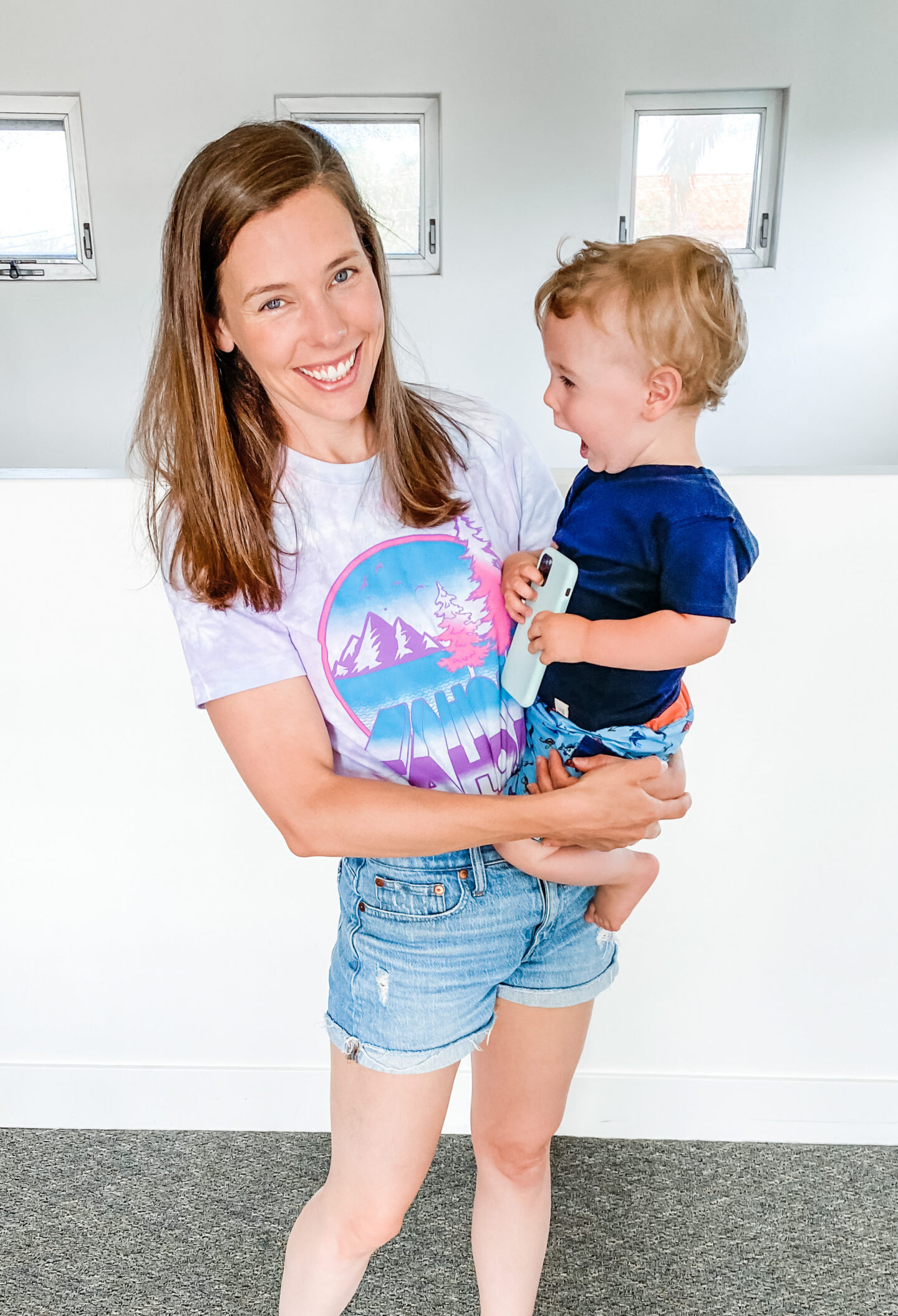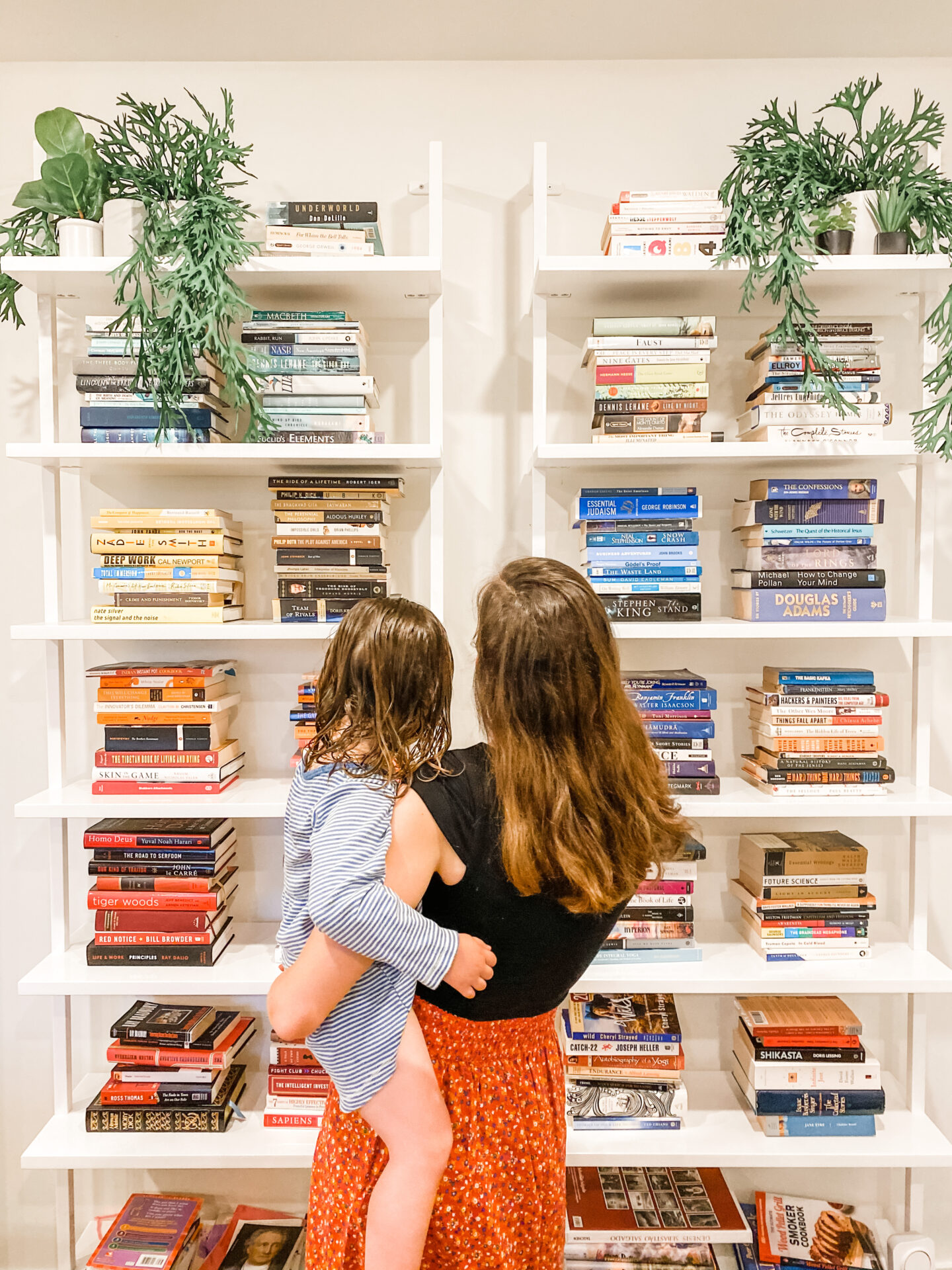Margot: 3 Years Old
Me: 32 Years Old
I find that I have a lot of sensory memories attached to children’s books. When reading Five Minutes Peace by Jill Murphy, for example, I was transported back in time to a very specific night in my childhood, when I sat on my older brother’s bed with my mom, dog, and younger brother. My dad was probably there as well, but he is not in the memory. I wonder now if that’s because the memory is shaped around the book, and Mr. Large, for some reason, is nowhere to be found in the story. (When you read the book, you might feel, like I did, a little miffed at this fact, as he could have easily provided the “5 minutes peace” Mrs. Large is so desperate for.)
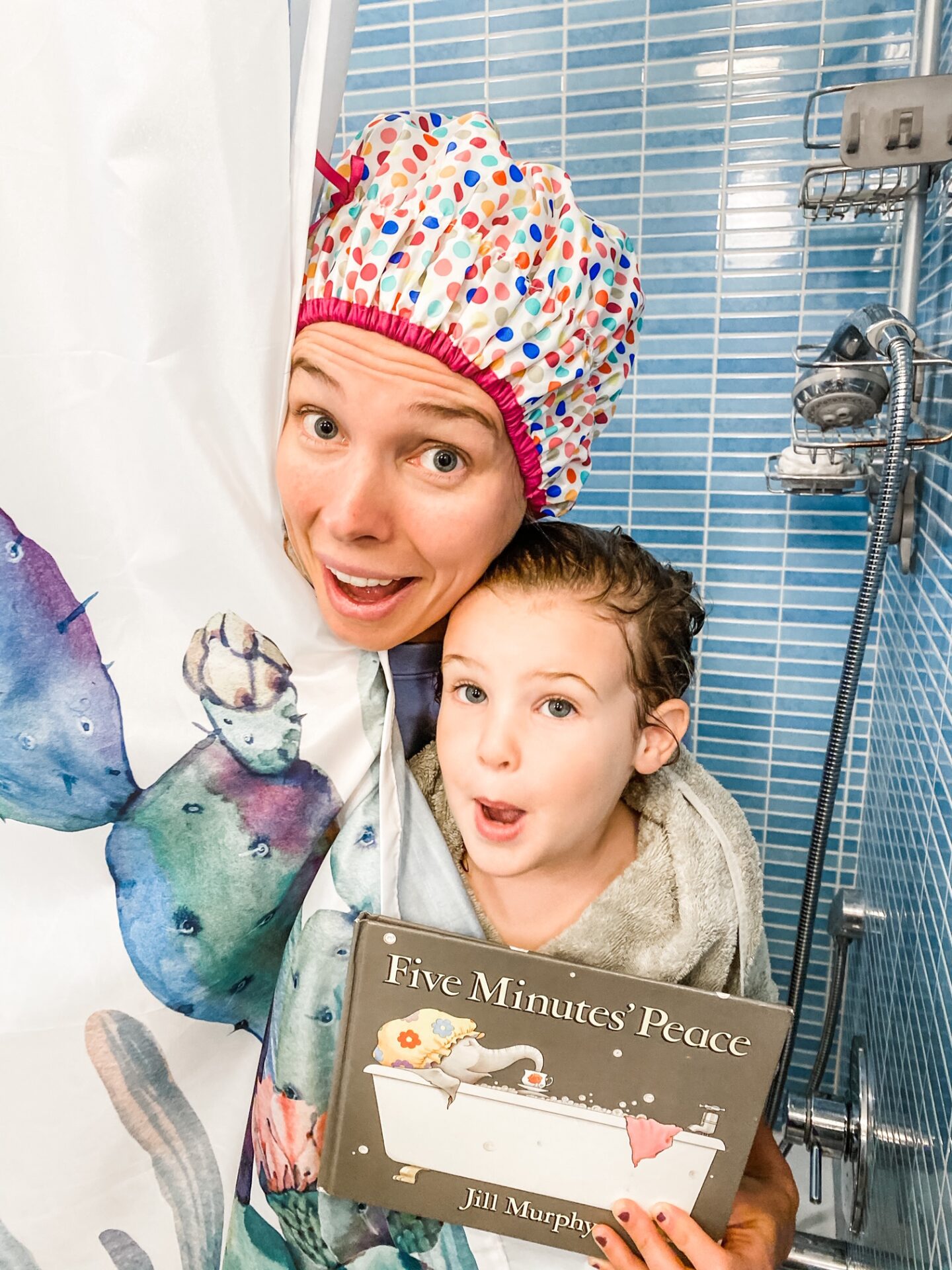
In my memory, I recall laughing at the book because I thought it was intended to be a joke. I thought that Mrs. Large was just pretending to be annoyed by her children, because why in the world would a mother want to be anywhere besides right next to her adoring, loving, obnoxious, mess-making children!?
When I read this book to Margot for the first time, I, of course, laughed at the naivete of my past self. I also felt a little disoriented in identifying so completely with Mrs. Large, and almost not at all, like I used to, with the middle elephant, Laura. (My family, in case you’re wondering, is structured exactly like the Large family: two boys, and a middle girl, all with different, but equally irritating character flaws). While I was once an over-dramatic child, desiring nothing more than to make everyone else in the house listen to me read aloud, for the 100th time, from my favorite Harry Potter book, I now stand firmly in maternal solidarity with the poor Mrs. Large, who loves her daughter something fierce, but also kind of wants to incinerate her beloved book.
Last night, as I was reading my current “grown-up” book (Swing Time, by Zadie Smith), I came across a quote that, at first, I considered very serendipitous (as I knew I would be writing about Five Minutes Peace today).
In the novel, the unnamed narrator introduces the complicated relationship she has with her mother by saying:
“As a child, no, the truth is it’s a war of attrition, rationality doesn’t come into it, not one bit, all you want from your mother is that she once and for all admit that she is your mother and only your mother, and that her battle with the rest of life is over. She has to lay down arms and come to you. And if she doesn’t do it, then it’s really a war”
Zadie Smith, Swing Time
This war is exactly what Mrs. Large (on much simpler terms of course) is engaged in with her children. As the book progresses, each of their requests, demands, and complaints chip away at her resolve, and drive her deeper into frustration and overwhelm. The kids also grow more frustrated as they realize that their mother is ignoring what they see as her sole purpose: to pay attention to them. Mrs. Large gets a minute of peace at the end of the story, but definitely not the five that she desired, before the kids troop in and the war begins again.
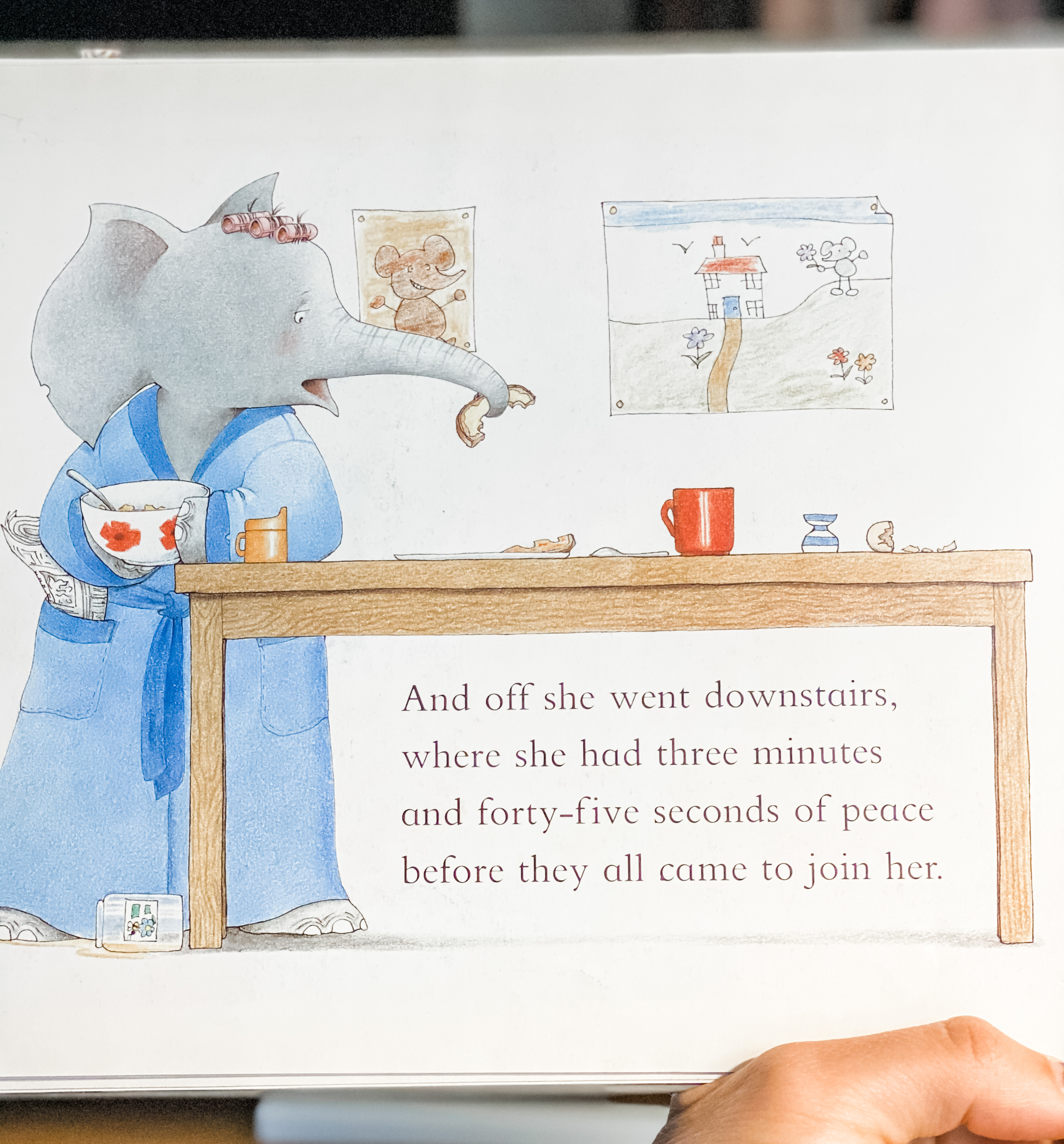
In Smith’s book, the mother character also rebels against the restrictiveness of her role. However, she does it a little more aggressively than Mrs. Large. She’s a complicated character, and one I think I am supposed to admire in some ways, but also not really like. Like Mrs. Large, the narrator’s mother is trying to manage fulfilling her own intellectual and personal desires (Mrs. Large reads the newspaper in her one minute off after all), with her responsibilities as a mother, and finds it nearly impossible to do.
However, to me, the message is not that these women fail, and that all mothers are doomed to suffer through decades of martyrdom for the sake of their children. Instead, I think we are supposed to learn that the conflict they all experience is actually a natural and essential part of the relationship.
Our kids demand our full attention and, oftentimes, try to control us, because they think that they are us (or, I guess, that we are them, because they are, of course, the sun, and us mere planets in orbit around them). Later in life, when my daughter is in her teens, or twenties, I’m sure that I will have similar thoughts, and start to exert what she will feel is a “stifling” degree of control. The bigger she gets, and the more mistakes she makes, the more I will have to come to terms with my feelings about whether or not she is an extension, and a reflection, of me.
But all this pushing and pulling and arguing and running away from will hopefully end up teaching us that we are not each other. That while I made my kids, they are separate from me, and that there is only ever one healthy way for the war to end: with the liberation of both parties, and the right to say a firm no thank you to the recorder performance.
Even though I would like to believe that being thoughtful, educated and prepared (if I am even any of these things) will allow me to avoid a few battles here and there, it is becoming clearer that the struggle is going to happen anyway, because it is the way we grow up, and change each other, and hopefully come to some kind of understanding (albeit a fluid one) of who we really are.
The more I think about this parallel, and my initial feelings that it was so odd for these two, very different books, to touch on such a similar theme, the more I realize that it’s not really serendipitous at all. Because Mrs. Large’s plight is the plight of all mothers, and all books, being about humans, are also very much about mothers.
Click to Buy: (Do it, they’re really good.)


